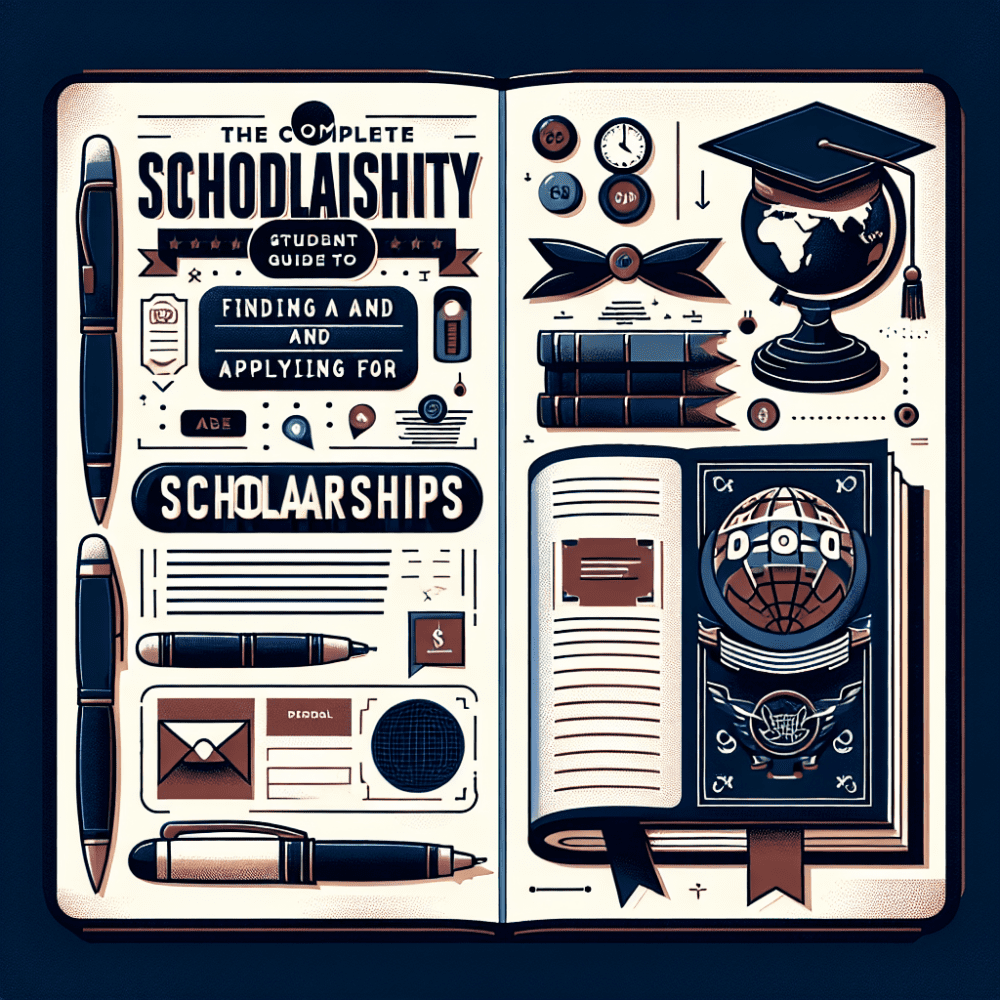
In today’s world, the cost of education continues to rise, making scholarships more critical than ever for students seeking higher education. Scholarships offer financial assistance that can help alleviate the burden of tuition, books, and other educational expenses. This guide aims to provide students with comprehensive information on how to find and apply for scholarships effectively.
Understanding Different Types of Scholarships
Before diving into the search process, it’s essential to understand the various types of scholarships available:
- Merit-Based Scholarships: Awarded based on a student’s academic achievements, talents, or other merits.
- Need-Based Scholarships: Provided based on a student’s financial need.
- Athletic Scholarships: Awarded to students who excel in sports.
- Minority Scholarships: Targeted at students from specific ethnic groups or minorities.
- Field-Specific Scholarships: Offered to students pursuing specific fields of study.
- Military Scholarships: Available for students who have served in the military or are dependents of military personnel.
Understanding these categories can help narrow down your search and target scholarships that best fit your profile.
Starting Your Scholarship Search
The first step in finding scholarships is knowing where to look. Here are some proven methods:
- Online Scholarship Databases: Websites like Fastweb, Scholarships.com, and Cappex offer searchable databases where students can input their information and receive lists of scholarships they qualify for.
- College Financial Aid Offices: Most colleges have financial aid offices that provide information about available scholarships.
- High School Counselors: High school guidance counselors often have resources and connections to local scholarship opportunities.
- Professional Organizations: Many professional groups offer scholarships related to their field, such as the National Society of Professional Engineers or the American Medical Association.
- Community Organizations: Local clubs, businesses, churches, and civic groups sometimes provide scholarship funds for local students.
- Employers: Some companies provide scholarship opportunities for employees or their children.
Using a combination of these resources will maximize your chances of finding suitable scholarships.
Preparing Your Application Materials
Once you’ve identified potential scholarships, preparation is key:
1. Personal Statement/Essay Writing
- Tailor Each Essay: Specifically address the scholarship prompt.
- Highlight Achievements: Discuss your goals, community service, and why you deserve the scholarship.
- Proofread: Review multiple times or seek feedback from teachers or mentors.
2. Letters of Recommendation
- Choose Recommenders Wisely: Ask teachers, coaches, employers, or community leaders who know you well.
- Provide Notice: Give them plenty of time and necessary information about the scholarship.
3. Resume/CV
- Include Key Information: Academic achievements, extracurricular activities, work experience, and volunteer work.
- Keep It Clear and Concise: One page is typically sufficient unless extensive detail is required.
4. Transcripts & Test Scores
- Up-to-Date Copies: Ensure you have the latest copies ready if required by the application process.
5. Proof of Eligibility Documents (if applicable)
- Specific Requirements: This might include proof of heritage for minority scholarships or proof of involvement in certain activities like arts portfolios for art-specific scholarships.
Submitting Applications Effectively
Attention to detail during submission can make a significant difference:
1. Follow Instructions Carefully
- Unique Instructions: Every scholarship has specific guidelines; follow them precisely.
2. Meet Deadlines Early
- Submit Early: Aim to submit applications well before deadlines to avoid last-minute issues.
3. Use Certified Online Submission Platforms
- Trusted Platforms: Ensure the use of secure and official websites for submitting applications.
4. Keep Copies of Submitted Materials
- Organized Filing: Maintain a file with copies of all submissions to track deadlines and requirements.
5. Proofread Before Final Submission
- Error-Free Applications: A final review can catch common errors that might lead to disqualification.
Maximizing Your Success
Winning scholarships requires patience and persistence. Here are some additional tips:
Start Early
- Begin As Soon As Possible: Starting in your freshman year of high school can build a strong application profile.
Stay Organized
- Track Deadlines and Submissions: Use spreadsheets or calendars to manage the process.
Apply Often
- Increased Chances: Applying to multiple scholarships increases your odds of receiving financial aid.
Seek Feedback and Revisions
- Improve Applications: Feedback from others can enhance the quality of your applications.
Focus on Small and Local Opportunities
- Better Odds: Local scholarships often have fewer applicants, increasing your chances.
Maintain a Positive and Persistent Attitude
- Stay Determined: Expect some rejections but remain persistent.
Avoiding Common Pitfalls
Avoid these traps to increase your chances of success:
Procrastination
- Avoid Last-Minute Rushes: Leads to mistakes and poor-quality submissions.
Incomplete Submissions and Rushed Work
- Ensure Completeness: Cross-check all requirements for thoroughness.
Ignoring Instructions and Guidelines
- Adhere Precisely: Deviation can result in immediate disqualification.
Neglecting Smaller Awards
- Every Bit Counts: Smaller awards can collectively make a significant impact.
Leveraging Available Resources
Use support systems to maximize success:
Family, Friends, and Mentors
- Guidance and Encouragement: Utilize their insights and support.
Online Forums and Social Media Groups
- Community Support: Share experiences and tips with fellow applicants.
Writing Centers and Professional Editors
- Enhance Quality: Improve personal statements and essays.
College Financial Aid Offices and Career Services
- Workshops and Counseling: Access exclusive opportunities and navigate complexities.
Conclusion
Scholarships represent valuable opportunities to ease the financial burdens of education. By identifying suitable opportunities, preparing strong applications, and following the provided guidance, you can significantly increase your odds of success. Persistence and determination are key. A well-organized approach to finding and applying for scholarships can be a rewarding and worthwhile endeavor that pays dividends for years to come.
Start early, stay organized, apply often, seek feedback, and maintain a positive attitude. Avoid common pitfalls and leverage available support systems to achieve your ultimate objective of fulfilling your educational dreams while minimizing financial strain. Good luck!












